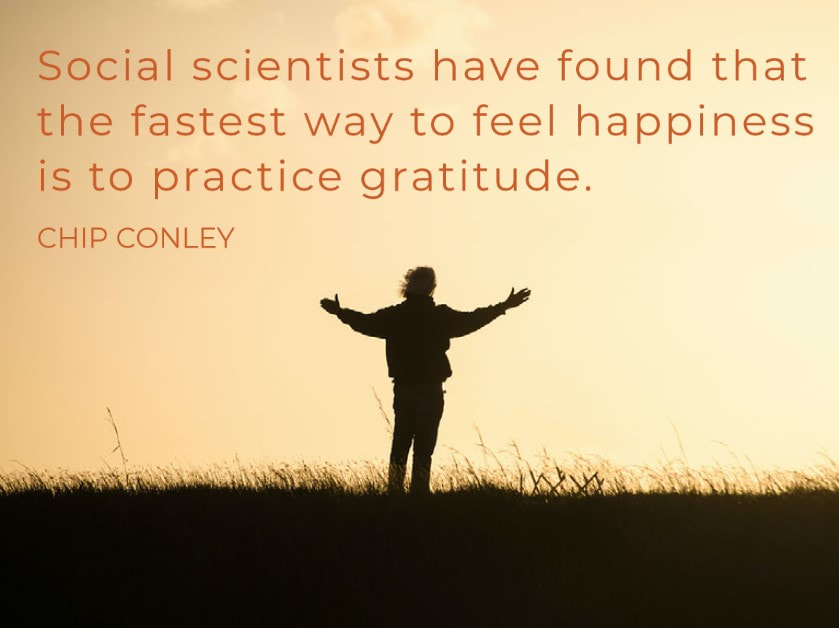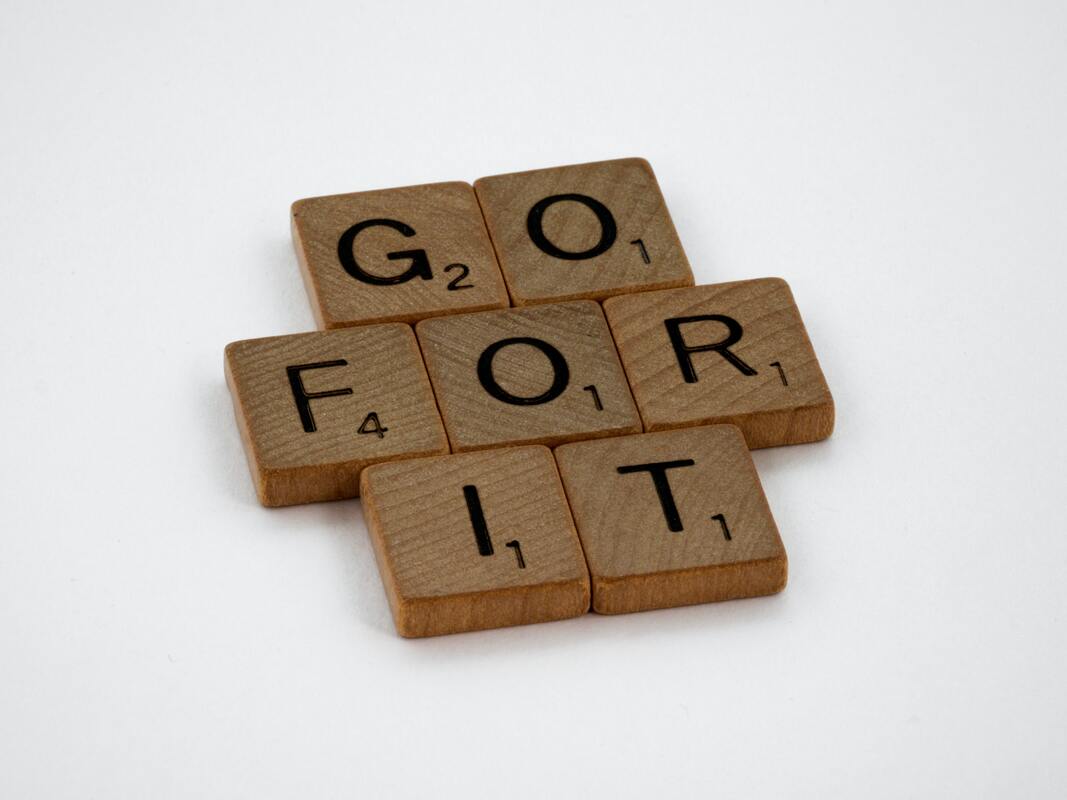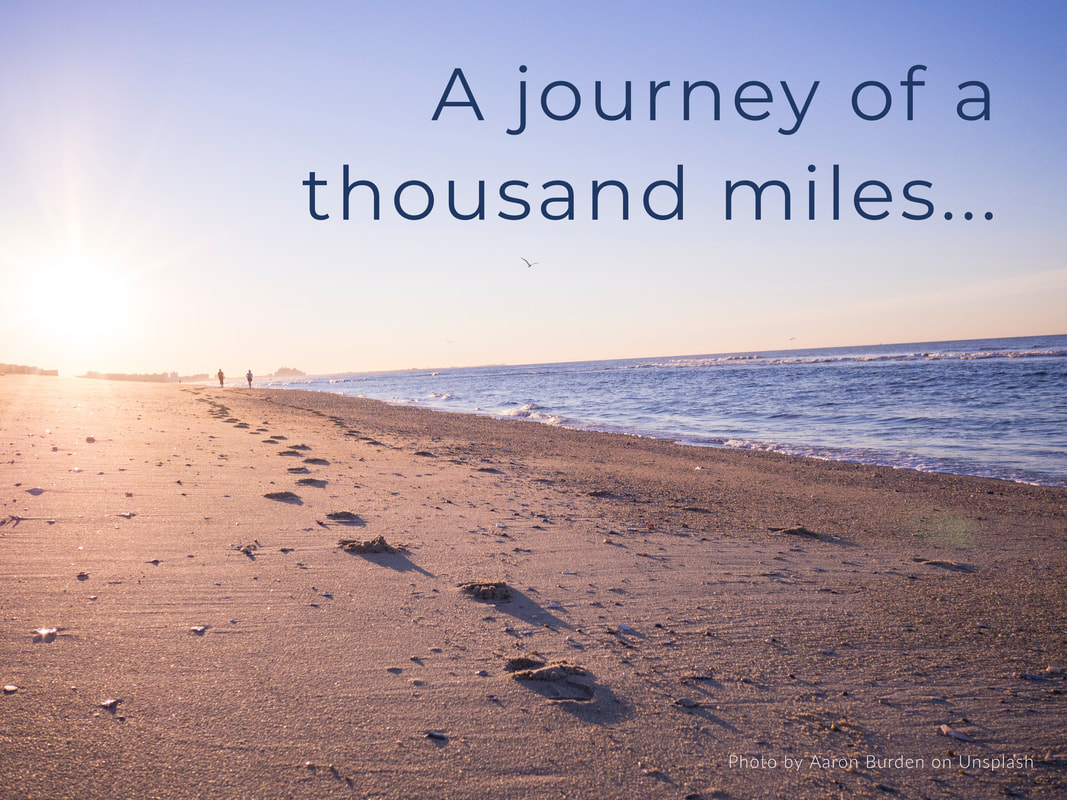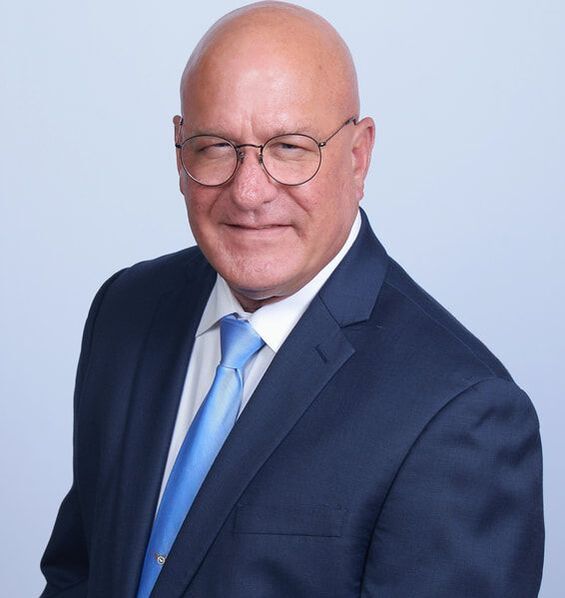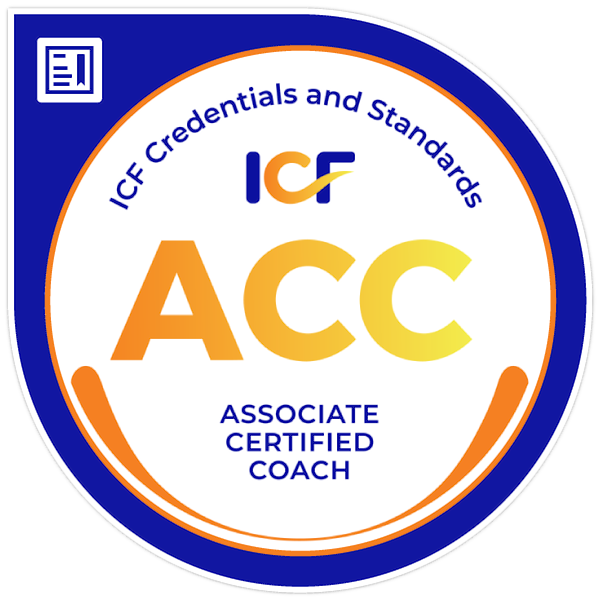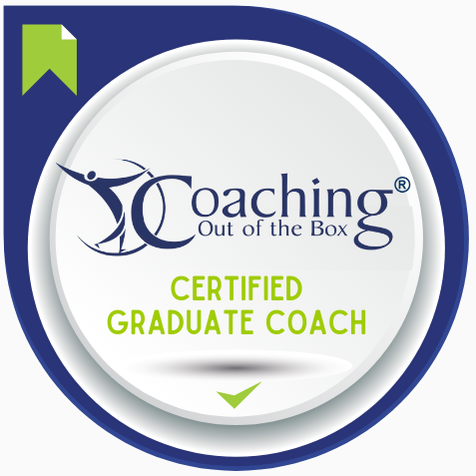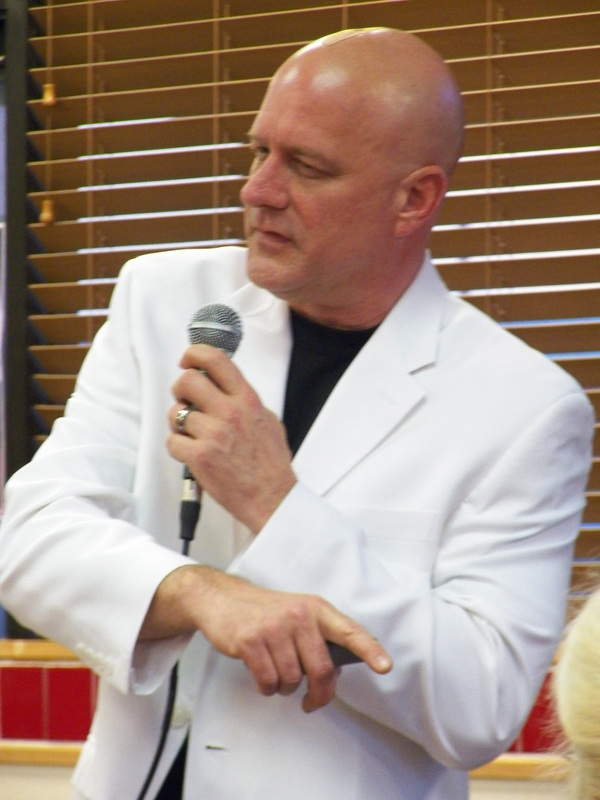Pain is inevitable, suffering is optional. BUDDHIST PROVERB Impactful change starts with a conversation! Schedule your FREE, 1-hour discovery session now, click here: Discovery Conversation Calendar Interested in learning more? Click below to watch Alan's introduction video and learn about his passion for helping others and his qualifications as a coach. You can also discover more about coaching and what a coaching session is like. Just click here: Coaching with Alan Alan maintains the ethics and standards of behavior established by the International Coaching Federation (ICF), including the standards regarding confidentiality. You can learn more about them on the ICF website.
0 Comments
Wednesday, September 21 is World Gratitude Day. The idea to have this annual, worldly focus on and expression of gratitude was born in the meditation room of the United Nations by Sri Chinmoy, an Indian spiritual leader and meditation teacher almost 60 years ago. And as Chip points out in our opening quote, the research soundly supports some pretty compelling reasons why. Download my free The Benefits of Gratitude to find out what those benefits are. You don't have to enter your email. No irritating pop-ups. No more junk mail. It's simply my way of expressing gratitude to you for reading my blog. So, here they are in reverse order: 4. Recognize your direct-reports. When the benefactor (the giver) is someone higher in relative social status or power, a gift (like gratitude) is seen as more deliberate and meaningful, compared to say a family member or coworker. This leads the recipient to feel and express more gratitude and starts a positive, upward spiral of positivity. As a leader, when you praise, thank, and provide your direct reports benefits of any type, your authentic words and actions have power. 3. Carry a gratitude rock. Find a small stone and carry it around in your pocket. Then, throughout the day, whenever you notice it in your pocket, think of something that your grateful for. This helps increase being grateful and happy about your day in a spontaneous way. I've practiced this ritual off an on for many years. I start the ritual in the morning when I pick it up off the nightstand to put it in my pocket. I say at least one thing I’m grateful for—sometimes more—to get my day started. At the end of the day, when I’m putting my things away, I do it again. 2. Conduct a Gratitude Letter and Visit Ritual. Originated by Chris Peterson at the University of Michigan, this strategy has scientific proof that it works. Here’s what you do: Spend some time reflecting on a person in your life who has been especially kind to you but whom you've never properly thanked. Then, sit down and write a detailed gratitude letter to that person. In the letter, explain in concrete and specific terms why you're grateful. After you’ve completed the letter and you’re satisfied with it, schedule a visit with that person. During your visit, read the letter aloud to them. Research by Martin Seligman, PhD and colleagues revealed that this technique produces large positive changes in happiness for up to one month, not to mention the positive changes it can do for your relationship with that person. 1. Keep a Gratitude Journal. Of all the techniques, this one is by far my favorite because of its power and long-term effects. Here’s what you do: As late in day as possible but before you’re too sleepy sit down and write down 3-5 things that you are grateful for that day. After each entry, also write down why you think each event happened or why you’re grateful for it. Do this for a minimum of 21 days. The technique only takes about 5-10 minutes. I’ve found that couples or friends who do this together and share it, report more profound effects. Martin Seligman, the father of positive psychology, and colleagues reported in 2005 on answers they found to the question, “What really works when trying to increase happiness?” (Seligman, Stern, Park, & Peterson, 2005). One of the most powerful interventions that really worked at increasing happiness was practicing a form of a daily gratitude journal that they called the ‘Three Good Things in Life’ intervention. It took about a month for the increases in happiness to become statistically significant, even if done for only one week. So, a little patience in the beginning is necessary. The happiness levels continued to rise after that—all the way out to six months! It absolutely amazes me that something so simple and free can have such a powerful and long-lasting effect on happiness. Happy World Gratitude Day! Have an amazing journey today! Impactful change starts with a conversation! Schedule your FREE, 1-hour discovery session now, click here: Discovery Conversation Calendar
Alan maintains the ethics and standards of behavior established by the International Coaching Federation (ICF), including the standards regarding confidentiality. You can learn more about them on the ICF website. You must want to be first-class—meaning the best, the very best you are capable of becoming. ABRAHAM MASLOW Abraham Maslow tells us that if we want to be happy, then we must first want to be first-class and our best self. He is encouraging us to pursue and live to the highest level of human psychological development—to become self-actualized. We must want to move towards our best self; towards activating and expressing our full capacities; towards making our goals and dreams come true. And the wanting is the first step. But wanting it is what is called necessary but not sufficient. So much else must follow that desire, like increasing our self-awareness, planning, strategizing, and actually embarking on the journey towards the peak. We must also remember that happiness isn’t achieved just by reaching the peak, but by enjoying the journey. He repeats this theme about how to start another way, "The desire to accomplish everything that one can, to become the most that one can be." Do you want to be your first-class self? Your best-self? Do you desire to be the most that you can? What will you accomplish along the way? Ponder that. Nurture that desire. Then, go for it! Ready to go for it?
Impactful change starts with a conversation! Schedule your FREE, 1-hour discovery session now, click here: Discovery Conversation Calendar Alan maintains the ethics and standards of behavior established by the International Coaching Federation (ICF), including the standards regarding confidentiality. You can learn more about them on the ICF website. A journey of a thousand miles begins with a single step. How many times do I have to see this quote? I get it. We've all seen the quote from the Tao Te Ching before. Read on for a surprise lesson from further down in the full verse. Although this quote is usually used as encouragement for someone who is about to begin a major project, pursue a new goal, or embark on a major life event, when you read the full 64th verse of the Tao Te Ching, it becomes clear that Lao Tzu is offering us far more wisdom than just a kick-off spurt of encouragement. Later in the verse it is written: People usually fail when they are on the verge of success. Be present. Lao Tzu's wisdom from over 2500 years ago still has great value for us today. If we are seeking success, it is through attentiveness to each and every step—each now, from beginning to end—that we achieve success and a fully-lived life. No matter how far the journey and how many steps we must take, the only step I have any influence over is the step I am taking right now. The need for instant gratification and expectations for immediate results run rampant in our fast-paced world. But the wisdom of the Tao advises us to avoid rushing into action and instead to pay careful attention to each step of our journey, being sure not to rush or force things. The more we rush, the more mistakes we are likely to make. It is about being present. Each stage and each step of our journey has its own flow, its own pace and its own requirements and gifts. If we become aware of and align ourselves more with that, we find that we can achieve more effectively, with more impact, and with an effortlessness and ease. Have an amazing journey! Impactful change starts with a conversation! Schedule your FREE, 1-hour discovery session now, click here: Discovery Conversation Calendar Looking for a coach? Click below to watch Alan's introduction video and learn about his passion for helping others and his qualifications as a coach. You can also discover more about coaching and what a coaching session is like. Just click here: Coaching with Alan Alan maintains the ethics and standards of behavior established by the International Coaching Federation (ICF), including the standards regarding confidentiality. You can learn more about them on the ICF website.
|
Alan Mikolaj
Alan Mikolaj is a a professional, experienced, positive, and passionate speaker, leadership and organizational development consultant, change agent, author, and coach. He holds his Master of Arts degree in Clinical Psychology from Sam Houston State University. He is a certified graduate coach from Coaching Out of the Box and holds his ACC and membership with the International Coaching Federation (ICF). Free Discovery Conversation!
Impactful change starts with a conversation! Schedule your free, one-hour session by clicking here: Discovery Conversation with Alan
Or call or email: Contact Page In his third book, A Travel Guide to Leadership, Alan offers you simple, fundamental, and powerful lessons that have the power to transform you, your relationships, and your career.
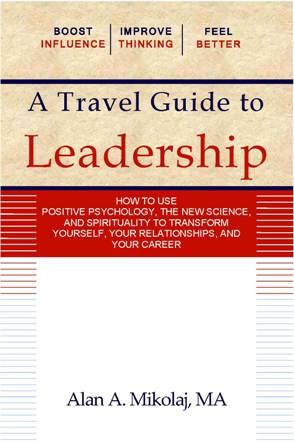
Blog Archives
July 2024
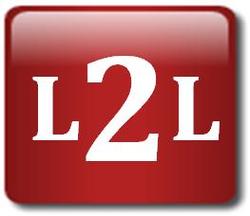
Linked2Leadership
Ranked #1 Business Blog! |
|
CONTACT
TEL: 346-291-0216 EMAIL: [email protected] SCHEDULE TIME WITH ALAN Free Discovery Conversation with Alan |

